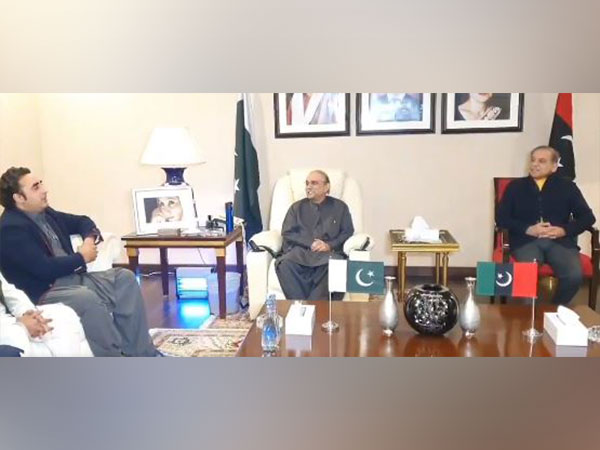Quite similar to balancing on a sea-saw, Pakistan is also dangling between maintaining its relationship with both Saudi Arabia, and Iran amid regional security concerns and persistent economic challenges.
This ‘balancing act’ of Pakistan was evident recently when Pakistan outlawed the Iranian-backed Zainebiyoun Brigade concurrently while obtaining a USD 2 billion deposit from Saudi Arabia, bringing the country’s total Saudi deposits in the State Bank to USD 5 billion, Muhammad Amir Rana writes in Dawn.
President Asif Ali Zardari informed his Iranian colleague that Pakistan remains committed to working together on matters of shared interest, such as security, notwithstanding this action.
The Middle East is already in chaos, tensions are soaring in the region, and the Israel-Hamas conflict, which is ongoing currently, seems to further escalate, with no ceasefire in sight.
The Zainebiyoun Brigade reportedly supplies the Islamic Revolutionary Guard Corps (IRGC) with weapons throughout the Middle East. Alleged Zainebiyoun members of Pakistani descent were reportedly captured in international seas last month transporting weapons intended for transfer to the IRGC in the Middle East. In a different instance, Pakistan’s decision to outlaw the group was made possible by the passing in Syria of a commander of Pakistani descent, Rana writes.]
Law enforcement agencies in Pakistan are thought to possess ample evidence of the Zainebiyoun Brigade’s complicity in sectarian violence within the nation and its recruitment of fighters for the wars in Syria and Iraq.
However, the government refrained from taking action earlier due to circumstances surrounding the purported presence of Baloch insurgents on Iranian territory, Rana adds.
Furthermore, the Iran-Pakistan gas pipeline remains a major reason for Pakistan’s tolerance of some key security issues with Iran.
The pipeline was an old idea, but implementation began much later, when Asif Ali Zardari was nearing the completion of his first term as president. Iran has built its part, but Pakistan is hesitant to proceed at its end, due to pressure from Saudi Arabia and the risk of debilitating US sanctions.
Moreover, the combination of Pakaistan President Asif Ali Zardari, and Prime Minister Shehbaz Sharif is working together and can keep Saudi Arabia and Iran in balance, Rana writes in his article for Dawn.
However, the writer says that Tehran could possibly remain a challenge for Islamabad.
“Iran will remain a tough diplomatic, political, and security challenge for Pakistan. It remains to be seen how President Zardari copes with the challenge, especially if the conflict in the Middle East escalates and leaves few choices for Pakistan’s closest allies in the Gulf. Meanwhile, an IMF bailout for Pakistan is also seen to be linked to how the latter country conducts its relations with Iran,” Rana writes.
A worrying situation might arise if Iran is forced to fully employ its purported proxies throughout the region, including Pakistan, as a result of the escalating Middle East conflict.
The test of time lies ahead for the nation.-ANI


